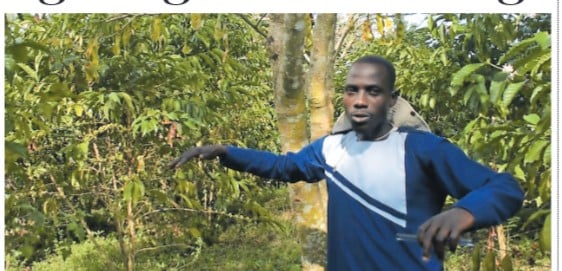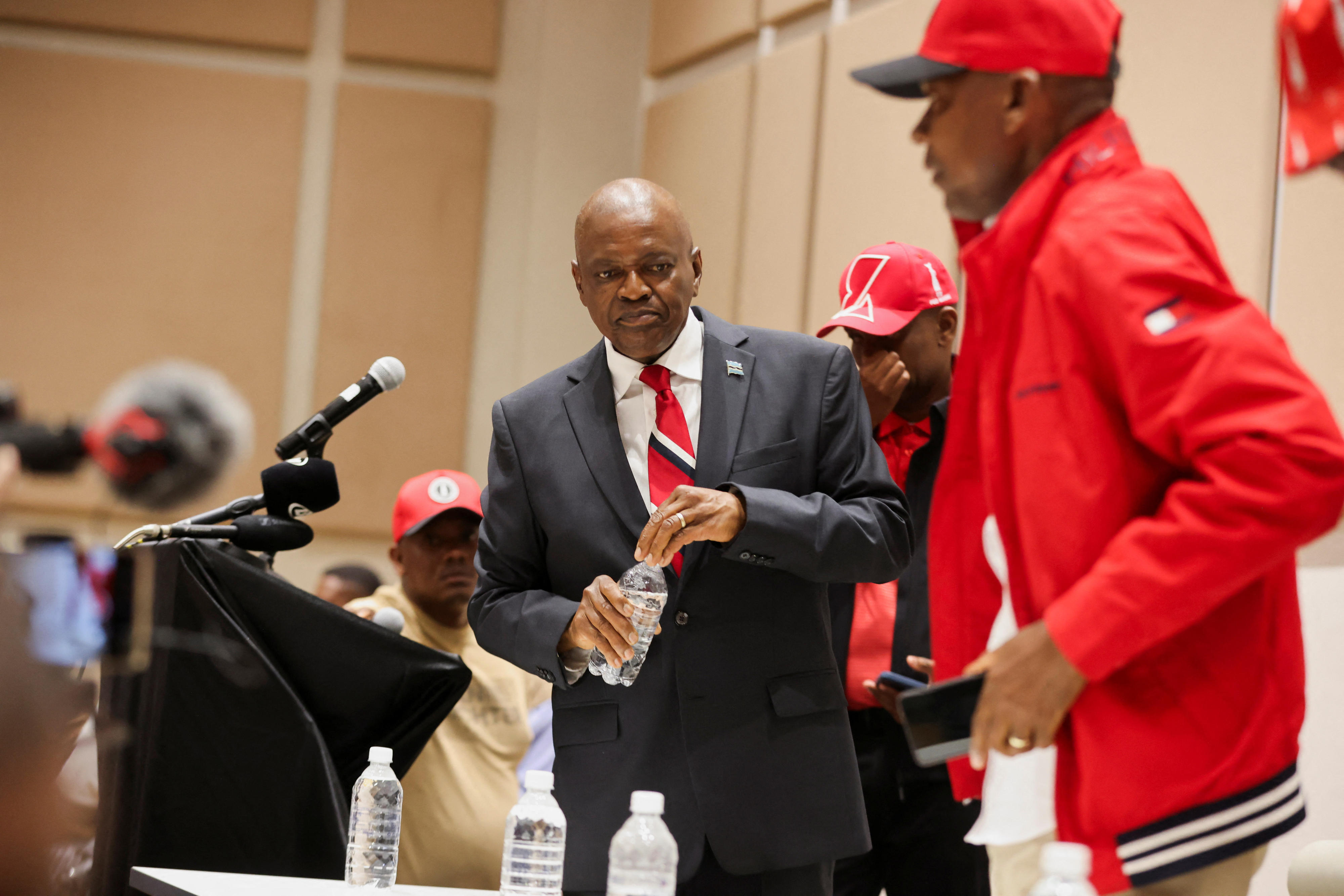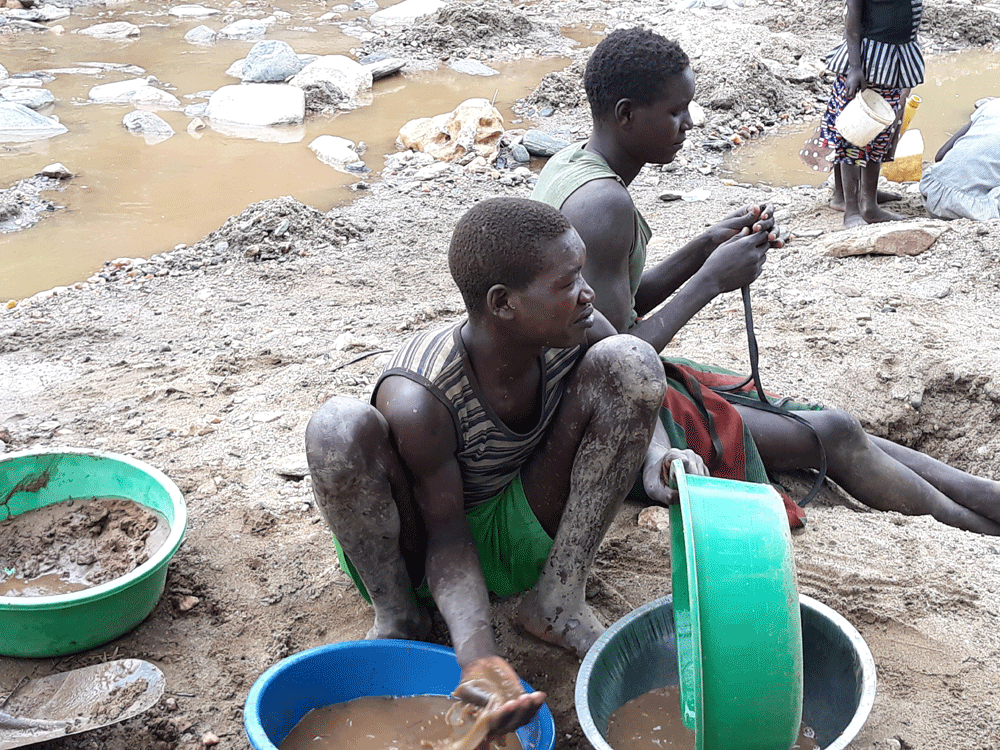How Acholi farmers are fighting climate change

Mr John Lakony, a farmer in Pamin Yai Sub-county, Nwoya District, in his coffee garden on Monday. Several farmers in Acholi Sub-region have embraced agroecology to avert the adverse impacts of climate change. PHOTO/EMMY DANIEL OJARA
What you need to know:
- Mr Alfred Ojok, a farmer in Lalar Village, Pamin Yai Sub County, Nwoya District, said he has planted 50 acres of pine trees to restore the depleted environment.
Several farmers in Acholi Sub-region have embraced agroecology to avert the adverse impacts of climate change.
Agroecology is sustainable farming that works with nature. They include afforestation, use of organic seeds and manure, mulching, planting legumes, and digging trenches to retain water moisture and prevent soil erosion and loss of nutrients.
Mr Ronald Reagan Nyeko, a smallholder farmer in Amuru District, lost several acres of beans and maize to drought two years ago.
To address this challenge, he began planting organic seeds that are resistant to harsh weather and started growing trees to help restore the degraded environment.
“We have to adapt to climate change because now its impacts are increasing day and night. The only way to adapt is through agroecology practices with the locally available materials that we have,” he said during an interview on Monday.
He added: “We have to maintain our environment, we should not destroy it. What we are trying to do is to plant more trees to recover the loss that we had during charcoal burning and we try to put our local seeds that are always resistant to pests and harsh weather.”
Mr John Lakony, a coffee farmer in Pamin Yai Sub-county, Nwoya District, said he lost three acres of coffee to drought in the last season.
He said he has now dug trenches and planted shade trees in his three-acre coffee plantation.
“We are digging trenches like you are seeing here, we dig the trenches, we plant shade trees, you plant more bananas so that it covers the coffee, it gives them shade and at least the coffee sustains the weather and this year at least it is making good,” Mr Lakony explained.
Mr Alfred Ojok, a farmer in Lalar Village, Pamin Yai Sub County, Nwoya District, said he has planted 50 acres of pine trees to restore the depleted environment.
“I used to do some work with National Forestry Authority, slashing under the tree, planting the forest. Through that I acquired the skills of establishing a forest plantation. I decided to plant trees with the help of my brother,” Mr Ojok said.
Ms Vicky Lukwiya Akello from Gulu District said: “The media should focus on supporting and promoting various models like community seeds security models that promote the protection of seeds security and sovereignty of small scale farmers which is the key in improving agriculture, productivity, seeds sovereignty through the increase to affordable quality of seeds.”
With support from the Eastern and Southern Africa Small Scale Farmers Forum Uganda (ESAFF), smallholder farmers have established seed banks for various local seed varieties in Tetugu Village, Ongako Sub-county, Omoro District.
Ms Naume Kalinaki, the regional officer of Livelihood and Enterprise Development at ESAFF Uganda, said adverse weather conditions, including prolonged dry spells and flooding, are reducing crop yields and making them more susceptible to pests and diseases—a situation that threatens food security.
“Lately, we have prolonged dry spells and it affects the production and output that a farmer is expecting out of their farm. The increasing drought also gives room for most of the pests that need most of that warm environment atmosphere to thrive. So that means farmers’ crops are not only succumbing to the weather but they are also succumbing to pests and diseases,” Ms Naume explained.
Mr Samuel Wokorach Opiyo, an agricultural officer in the Nwoya District, said: “Weather is the biggest issue affecting farmers. As a coping mechanism, I would encourage practices such as mulching that would help a lot to conserve a lot of moisture, plant cover crops such as legumes to increase nutrient levels within the soil, reduce evaporation, trenches also help a lot to avoid water erosion.’’




